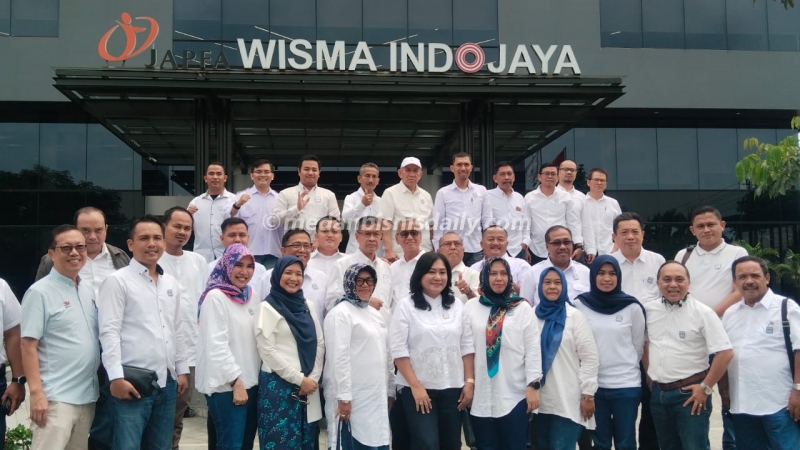Rejecting Tapera Contributions, Employers Say They Should Be Voluntary, Not Mandatory
Friday, 31 May 2024

Chairman of the Indonesian Employers Association (APINDO), Shinta Kamdani, voiced her protest against the People's Housing Savings (Tapera) contributions for employers and employees. According to her, these contributions should not be mandatory but voluntary.
She conveyed this during an APINDO press conference with labor unions regarding the Tapera policy. Shinta stated that voluntary contributions are more appropriate for the Tapera savings concept.
"We are not trying to cancel the (Law and Government Regulation), once again we are trying to revise what exists. What we reject is the imposition of contributions on us, forcibly, mandatory, not voluntary. If this is made voluntary, we have no problem, so we are not rejecting the Law and Government Regulation," Shinta said at the Apindo Office, South Jakarta, Friday (31/5).
Tapera contributions are regulated in Government Regulation (PP) Number 21 of 2024 concerning amendments to PP Number 25 of 2020 on the Implementation of Tapera and Law No. 4 of 2016. According to these regulations, workers' salaries will be deducted by 2.5% each month, with an additional 0.5% covered by the company. Shinta expressed her objections if these contributions were made mandatory for the private sector. It would be different if the government wanted to implement it to collect contributions from Civil Servants (ASN).
"I think if ASN, TNI, and Polri want to implement it because it’s within the government's domain, go ahead. It might be beneficial, but the private sector and labor unions believe that the government needs to reconsider and review the Law. Because the Law clearly states that this is an obligation," she said.
She also pointed out the similar program from BPJS Ketenagakerjaan, namely Additional Service Benefits (MLT), raising concerns about potential overlap. Employers hope that existing programs will be optimized instead of launching new contributions.
"The concept of providing housing through JHT is actually good. But why should we be burdened with additional contributions? There is already preparation through JHT with the MLT program. So, this is what drives us to respond that, in principle, we are not against Tapera, but from the perspective of the additional contributions that need to be paid again," she explained.
Currently, the burden borne by both employers and employees is almost 18.24-19.74%, consisting of social security contributions, JHT, death insurance, work accident insurance, pension, health social security, and severance reserves. Therefore, she believes Tapera will further increase this burden.
"We are already contributing to BPJS Ketenagakerjaan, which includes JHT, where 30% of the funds can be used for additional services, including for buying a house. The program is already running, and the amount is already large, almost Rp136 trillion, 30% of the total JHT. So, in our opinion, what is the need for additional contributions when there is already a program that can be optimized? We want to expand the utilization of MLT," she said.
Additionally, Shinta felt that employers and workers were not sufficiently involved or informed before the policy was officially enacted. This has resulted in many mismatches with the needs on the ground. Therefore, she plans to file for a judicial review to reassess the Tapera regulations.
"I feel there needs to be a joint position to provide input to the government. Sometimes the government is also confused about its interests, but in this case, our interests align. Later, we will provide more detailed input on what should be done, the concept between coercion and voluntariness. Voluntary is fine, but this cannot be forced," Shinta said.
Shinta is also optimistic that there is still room for the proposals from employers and workers regarding the Tapera contributions to be heard. She hopes that a review will be conducted soon and that the outcome will not be burdensome.
sumber :









